Introduction
The unceasing COVID-19 pandemic where team spirit is a challenge to combat the current scenario which is significantly affecting the worldwide human and animal inhabitants. During this stressful situation, veterinarians are rushing hotfoot to the planning towards serving the society, exemplifying veterinary medicine in the field of animal health and welfare. The pandemic aroused the need for time-honored and sustainable “One Health” approach and collaboration thus ensuring the role of veterinarian in public health concerns. Perseverance, hard work, patience and round-the clock duties despite of the worldwide lockdown imposed in the early months last year veterinarians have tediously put their relentless efforts in almost all spheres of the society paying their whole-hearted devotion not only towards animals but reflected their services towards human population serving the Nation as frontline workers contemplating Bapuji’s saying,
“The greatness of a nation and its moral progress can be judged by the way in which its animals are treated.”
Indeed it’s a time to pay tribute to the social and need-based efforts made by each veterinarian to support medical science ranging from laboratory research to COVID-19 sample testing and working together sharing their expertise to resolve the current pandemic.
The virus causing COVID-19 (SARS-CoV-2) emerged from an animal source, the pandemic steered by human to human contact. However, knowledge sharing, expert opinion and research still continues to understand the virus. Researchers, scientists, collaborators and workers in the animal health forum specially Veterinary and Para-veterinary sciences carries an important message and responsibilities to invigorate their remarks to develop a suitable relieving course of action with a common, cohesive response against the pandemic.
Veterinarians have evolved themselves as frontline workers in many countries as they solemnly swear to use their scientific knowledge and skills for the benefit of society protecting animal health and welfare supporting the work of human health authorities. Veterinarians are actively engaged in surveillance screening, by testing human samples thus supporting the diagnostic capacity of human health services. Few veterinary clinics helped providing sanitizers, PPE kits and ventilators. Veterinary epidemiologists gave a firm support to the public health response so as to track the spread of COVID-19.Furthermore, the veterinary services contributed in food security and safety too and ensured safe food for the society for sustaining their livelihoods.
It was in December 2019, when Pneumonia clusters with an unknown etiology entangled devastating Wuhan city, China. The causative agent was identified as a novel corona virus (SARS-CoV-2) which spread briskly capturing the whole world. It was declared as a global pandemic by the World Health Organization naming as COVID-19; corona virus disease 2019.
The world was battling this pandemic threat and number of cases increased day by day creating panic, anxiety and pain loosing innumerable lives daily; not even able to procure and incinerate the loved ones dead bodies. Lot many confusions and conclusions were coming out with long discussions wherein researchers from all parts of the globe introspected the reasons. COVID-19 may be causing a potential threat to animals, a zoonotic transmission from animal to human, an intra or inter species transmission etc.
The COVID-19 pandemic caused by severe acute respiratory syndrome corona virus 2 (SARS- CoV-2) is still continuing transforming the lifestyles showing its impact on the planet creating havoc in the health, welfare and production capability of almost all animals including laboratory animals and wildlife. The catastrophe not only affected human being but animals too were the sufferer. Henceforth, the exceptionally well defined Veterinarians’ response towards the COVID-19 as Veterinarians are determined essential workers, dedicated to work even with minimal infrastructure facilities round the clock. They provide essential services to educate animal owners too as they have the competence to switch over to a new environment and adjust themselves to safeguard animal health and welfare.
The anomalous nature of this virus needs high throughput technologies to adjust the habitation into a new normal lifestyle. This requires continuous monitoring, collaborative approaches and innovative minds so that the present situation can be controlled.
Veterinarian Response to the Society During Covid-19 Pandemic
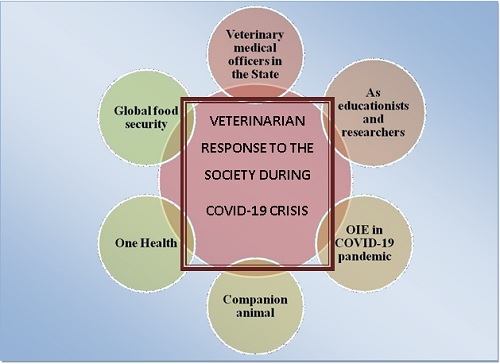
VETERINARIAN RESPONSE DURING COVID-19 CRISIS
A schematic representation in various spheres
The role of a Veterinarian is self-explanatory and evident since ages as public health worker. The pivotal role played by a veterinarian in the society can be applauded in research, health care, pharmaceuticals, parasite control, epidemiologists, public health, zoonoses dedicated towards animals and human beings. During this pandemic, the efforts of Veterinary services towards the animal and pets developed confidence and belief as animal owners noted the amicable work done by veterinarians.
Veterinarians contributed with medical sciences in many countries and worked with human health workers in clinics, hospitals and laboratories. Veterinary services regularly provided welfare safeguarding livelihoods including food security. The Veterinary services offer expertise to the poorest section of the society to help them control animal diseases and overcome livestock losses and economy. There are several NGOs working in order to promote sound health care and increased production through animal rearing and convince animal owners to invest more to control animal diseases and zoonosis.
Role Of Veterinary Medical Officers in the State during COVID-19 Pandemic
Veterinary professionals performed their duties in the Veterinary centers even during the days when complete lockdown was imposed facing the challenges as there was strict administration with no public conveyance. Veterinary medical officers travelled by their own vehicle through permitted routes taking care of themselves with limited availability of sanitizers, face masks, gloves etc. Vaccination, treatment, management of abandoned animals, feed and fodder supply, milk supply, awareness campaigns regarding milk, meat, egg consumption was continuous challenge for state veterinary medical officers.
Veterinary medical officers were trained regarding sanitization and maintaining social distancing while performing their duties and treating animals at doorsteps. Their life was at risk as other corona warriors. Several awareness camps regarding hand sanitization, wearing mask and social distancing were held at village and block levels to educate people about the pandemic.
Veterinary professionals battled the pandemic crisis not only in the workplace, but at home where they remain isolated to keep away the disastrous virus from their family, they constantly supported public as they were questioned by animal owners COVID-19 infection in animals and birds reared by them, transmission from bats, pangolin, fishes, whether it is safe to consume meat, egg, milk from animals etc.
Managing and feeding abandoned animals was a challenge in the field conditions. They handled the stray animals with the help of local administration and animal welfare volunteers. However, few families supported and came forward with feed and water arrangements for such animals and birds and saved them from prolonged starvation.
Moreover, scarcity of feed and fodder as transportation was banned created critical situation in majority of the farms. Veterinary doctors in association with the local administration helped the farmers and animal owners to resolve the crisis. Similarly supply chain for clean milking and its distribution was a challenge for veterinarians as there was a break in the supply chain due to lockdown and consumption fear. They educated the farmers, dairy owners and milkman and made aware of the pandemic and its safety measures. Despite the lockdown during the pandemic, vaccination was carried out by the Veterinarians. They firmly supported various animal owners including the nomads by arranging feed and fodder for them.
The corona virus infection created panic in many families and practicing vets where dedicated veterinary doctors were affected admitted and many lost their lives from different parts of the country. Dedication towards service lead various veterinary doctors from different parts of the
Veterinarians’ response as educationists and researchers during COVID-19 pandemic
To tackle the worldwide pandemic, Veterinarians responded in different fields wherever they are. Various departments of Veterinary institutions engaged themselves in preparing sanitizers in laboratories and distributing these to the poor population of the country. Apart from this, creating awareness among the people in villages was a target, teaching them the basics of hand wash and sanitization. Veterinary colleges of the country played a pivotal role in preparing hand sanitizers as per the guidelines of WHO which was cheap and easily available. Various departments of the college and faculty created awareness amongst the non-teaching staff demonstrating and reminding them to clean their hands several times.
To speed up testing of COVID-19, as it was the need of the hour for timely management of this pandemic, COVID-19 Viral Testing Laboratory was established at several Veterinary Universities. RT-PCR based COVID-19 Testing Laboratory was established renovating existing facilities in the veterinary colleges. Veterinary Universities established COVID-19 testing laboratories aiding submerged human health laboratories identify COVID-19 samples. Veterinary laboratory are well equipped with sophisticated instruments and possess laboratory personnel with skills, experience and expertise to help public health services meet the burst in demand for diagnostic testing in humans.
OIE in COVID-19 pandemic
The World Organization for Animal Health (OIE), an intergovernmental organization responsible for improving animal health worldwide ensures transparency in the global animal disease situation, dissemination of scientific information after collecting and analyzing the latest veterinary scientific information. Scientific information is also disseminated through various works and periodicals published by the OIE. OIE works with its tripartite allies, the World Health Organization (WHO) and the Food and Agriculture Organization (FAO).
The OIE encourages international solidarity in the control of animal diseases including diseases transmissible to humans. The OIE has already developed high-level guidelines for veterinary labs collaborating with public health services to facilitate human sample research.
Apart from these, OIE safeguard world trade by publishing health standards for international trade in animals and animal products so as to provide greater protection for animal health and public health and reducing the threat for other countries which are free of diseases. The OIE considers the veterinary services as a Global Public Good. OIE provide a better guarantee of food of animal origin and to promote animal welfare through a science-based approach.
Global food security in the continuing COVID-19 pandemic – Veterinarians’ response
The continuing worsening worrisome pandemic has put global food security at threat as COVID- 19 pandemic is creating havoc to the local and global food supply market. Lockdown, loss of jobs, insecurity, shut-down of hotels, restaurants has lead many of the farmers and animal owners to forcefully unwillingly lose their business related to animals and animal products. This in turn has subsequently declined the economic growth. Global food security is still facing challenges as essential market flow is insufficient to meet the desired demands of the consumers. However, veterinarians have accepted the challenge and focusing at transforming global food security or remain submissive facing the heavy economic decline.
Veterinarians and One Health
A collaborative One Health approach correlating human, animal and environmental health facilitating cross-sector cooperation working locally, nationally, and globally – to attain optimal health for people, animals and our environment creating awareness that the health of humans, animals and the environment are interlaced. Veterinarians’ response in the current pandemic is leading ahead because animals are either affecting or affected by human beings and the environment. Veterinarians in all spheres as clinicians, epidemiologists or ecological experts are sharing and expanding their knowledge and protecting the health of three pillars- animals, people, and the environment. Treating and relieving an ailing animal is not only the role of a veterinarian but veterinarians also provide preventive care to keep them healthy, interact with owners to make assure that they provide nutritious food, help manage their weight, provide guidance on behavior and training, offer advice on pet selection, and much more. The health of humans and animals should not be addressed separately and the One Health paradigm seems to confirm this.
Companion animal in COVID-19 – Veterinarians’ role
A hike in the number of cases diagnosed with the novel corona virus (COVID-19) is still causing distress in individuals. Anxiety, a feeling of dejection as normal work, lifestyle, routine everything have been disrupted, multifarious reasons- the lockdown, limited availability of essentials, the concern of loved ones being impacted. Constant exposure to warnings and upsetting news via social media or television adds to the stress and negative emotions. Through the field of psychoneuroimmunology, it is now well-established that stress, anxiety, and depression can dysregulate our immune system leading to poor health. However it can be mediated by companion animals. These are pets working as therapy animals or emotional support animals. Veterinarians have been active in building a well-respected companion animal medicine industry that promotes the essential human-animal relationship. Clinical services for pet animals are in high demand during COVID-19.
Conclusion
The crisis, the odd situation, sufferings and colossal loss suffered by almost all age groups, all the inhabitants of the earth have revolutionized the world. It has changed the concept and people learnt to strive hard and live with minimum possible amenities. Time changed the mindset of people to survive with each other and believe in the old, religious beliefs with ayurveda. However, this predominant variant is still causing harm and showing its virulence increasing the cases day by day. Though vaccination drive has curtailed the pandemic, still; discussions, research, conclusions are required to make the world adjusting to the nearly new normal life. The current pandemic has given ample chance to veterinary science to reach new heights and come out in the society as an innovator and leader. Still few areas need attention which may include food security and conservation. A collaborative approach of one health will certainly help overcome the pandemic and veterinarians will serve the society with efforts in diversified fields.
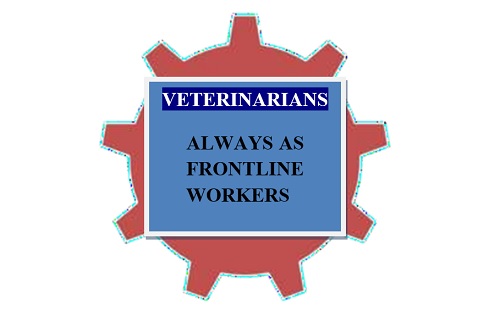

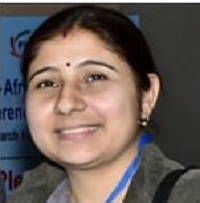
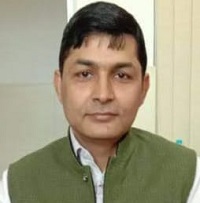
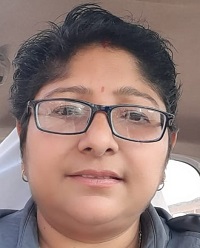
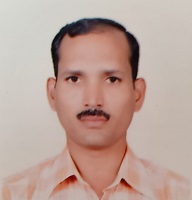

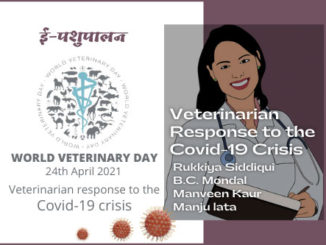
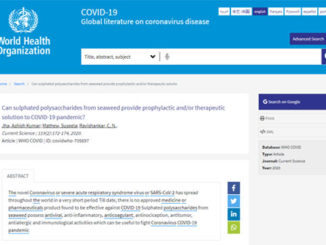

Be the first to comment